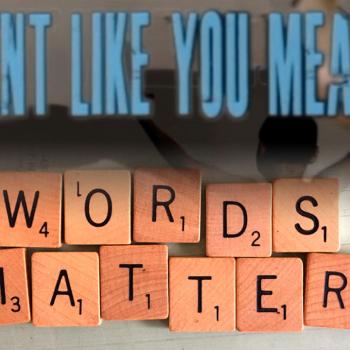
 Ouxano 102: How To Easily Start Reading the Bible With Your Kids Play Now | Play in Popup | Download
Ouxano 102: How To Easily Start Reading the Bible With Your Kids Play Now | Play in Popup | DownloadAs our kids grow, the first phase of digging into God’s Word and applying it to their lives can begin as early as ages two to five. We need to start fostering reading habits in them and the importance of Bible stories by creating a visual experience for them and modeling the importance of reading the Bible’s stories to them. This is done, not just through reading books to them, but find Bible Story Books with engaging illustrations that help bring the stories to life in their minds, and read these stories to them appropriately so that they mentally, emotionally, and Spiritually grab a hold of these stories so much that even the illustrations become lasting memories.

Then, as they progress to ages five to eight, you want to take them a little deeper in their understanding of the Bible’s stories by asking them questions about how they would feel if they were in the story. These don’t have to be spiritually deep questions – just keep them relevant to the Bible story as well as to their own perspectives of the story. This allows them to enter into the story and feel the experience described in the Bible.
As they get older – from about ages seven to nine, you can help them grow to see the point of the story: What’s it all about? Why would God do what He did and how does this apply to me? For example, if you look at the story of Jonah, you see that God loves people so much that He is willing to have His prophet swallowed up by a giant fish in order to get Jonah to where God wanted him so that he could preach to the Ninevites. Therefore, the point of Jonah’s story is GOD’S LOVE. Once this is established, it’s an easy link to explaining to them redemption and their for it.
Now, this does begin to require more work from you, the parent. As you read the Bible stories with them, you need to be thinking about the point of the story and then spend one to three minutes with them discussing the point of the story. And remember: The point of the story always points toward the Gospel – God’s love for the world, which culminates in Jesus Christ.
And, think about it… for young kids, the very concept of Jesus dying on the cross for the sins of mankind can simply seem weird and hard to understand. But, God’s message of redemption and His love for mankind stretches from the very beginning with Adam and Eve in the garden, through stories such as Jonah, Moses, Daniel and the Lions Den, Jesus’ crucifixion and resurrection – all the way through to Revelation. The Bible points to God’s grace. And God’s grace always points us to Jesus.

One story that always comes to mind when I think about this is the story of David and Goliath (and I think David and Goliath is included in every single Bible story book in the entire world). Yet, the point of this Old Testament story is not “the underdog can win” or “if you just have enough faith, God can work through you to slay the giants in your life”. The point of this story is that God is looking for people to defend His honor and to trust in Him for their path in life. David was the only one to submit himself to God, to trust in God, and to allow God to use him, while resting in God’s power and not his own strength.
Just this portion of the story alone leads us to the Gospel. We will never be able to defeat the “Goliaths” of our life – even if we have a lot of belief or faith – were it not for the power of Jesus Christ in our lives.
Now, as your children grow older you will move from reading out of children’s storybooks to reading and actual Bible. You will also begin developing from solitary Bible stories to understanding the continuous flow of redemption weaving all throughout the Bible. Even as far back as Adam and Eve’s disobedience to God’s will, we see how God takes account of sin and then points us to Jesus. In other words, from the beginning of time, God has held mankind accountable for going against Him, but then allowing each of us a way of escape through His grace.
The entire Bible is full of God’s grace. And His grace always points us to Jesus Christ.
Your job is to help your kids see the connection between the stories as they deal with human sin, redemption and pointing us to our Savior, Jesus Christ.
So, which Bible to use? I recommend the New Living Translation – or any translation that is written similar to the language and tone that your family speaks in, so that it’s very understandable for your children.
You can start by reading the Gospels (Matthew, Mark, Luke and John). And as you read, you can start shedding light on our personal responsibility toward the Scripture, which is this: repentance, faith and obedience to God’s message and call to believe in Jesus Christ as our Savior.
Ask your kids relevant questions connecting the Bible and our everyday lives, such as, “How is this story going to help you with your friends at school?”; or “How can this story help you understand and get along better with your brothers and sisters?”; or “How can this story help us trust God even when we might be uncertain about…” Also, help your kids see the importance – within the stories and within their own lives – of putting off sinful behavior and putting on righteous behavior.

Finally, don’t let the things you don’t know about Scripture stop you from following what you DO know. And that is this: It’s a wonderful thing to have your kids reading the Word and having your family involved in the Bible together.
On a personal note, I have worked as a pastor for a long time and I grew up knowing the Bible very well. And here’s why: My father read the Bible to my brother and me every morning before we went to school. In fact, he was so faithful in doing this every day that I assumed that every family did this together. It was actually quite a revelation for me when I found out that other families didn’t read the Bible every day together. Now, my dad is not a pastor. He is not a Bible scholar. He never attended Seminary or Bible College. He’s an insurance salesman – an awesome one, at that. While he never had any formal theological training he had a desire to pour into his kids, spiritually. So, every morning, he would simply break out the Bible and read the stories to us.
You can do the same. You don’t need to wait until you learn this, or graduate from that, or take this parenting course, or that special class at church. YOU CAN BEGIN TODAY by reading the Bible to your kids and help them grow in their understanding of God’s plan for their lives.












